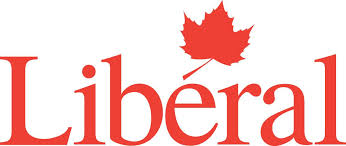liberal
英 [ˈlɪb.ər.əl]
美 [ˈlɪb.ər.əl]
- adj. 自由主义的;慷慨的;不拘泥的;宽大的
- n. 自由主义者
- n. (Liberal)人名;(葡)利贝拉尔
使用频率:

记忆方法
将“liberal”与“lib”联系记忆,想象一个“lib”代表自由、开放的空间,就像图书馆或公园一样,人们在那里可以自由地阅读、思考和交流,这样就可以联想到“liberal”意味着宽容、自由和开放的思想或政策。
以上内容由AI生成, 仅供参考和借鉴
中文词源
liberal 自由的
来自PIE*leu-dhero,来自*leu,人民,自由人,词源同eleutherian,自由人的,-dhero,工具格后缀,引申词义自由的,开明的,大方的,无私的,高贵的。现主要用于自由的,词义演变比较frank.
英语词源
- liberal
-
liberal: [14] The Latin word for ‘free’ was līber. It came from the same prehistoric source as Greek eleútheros ‘free’, which may have denoted ‘people, nation’ (in which case the underlying etymological meaning of the word would be ‘being a member of the (free) people’, as opposed to ‘being a slave’). From līber was derived līberālis ‘of freedom’, which passed into English via Old French liberal.
Its earliest English meanings were ‘generous’ and ‘appropriate to the cultural pursuits of a ‘free’ man’ (as in ‘the liberal arts’). The connotations of ‘tolerance’ and ‘lack of prejudice’ did not emerge until the 18th century, and the word’s use as a designation of a particular political party in Britain dates from the early 19th century. Also from Latin līber come English libertine [14] and liberty [14].
=> libertine, liberty - liberal (adj.)
- mid-14c., "generous," also, late 14c., "selfless; noble, nobly born; abundant," and, early 15c., in a bad sense "extravagant, unrestrained," from Old French liberal "befitting free men, noble, generous, willing, zealous" (12c.), from Latin liberalis "noble, gracious, munificent, generous," literally "of freedom, pertaining to or befitting a free man," from liber "free, unrestricted, unimpeded; unbridled, unchecked, licentious," from PIE *leudh-ero-, probably originally "belonging to the people" (though the precise semantic development is obscure; compare frank (adj.)), and a suffixed form of the base *leudh- "people" (cognates: Old Church Slavonic ljudu, Lithuanian liaudis, Old English leod, German Leute "nation, people;" Old High German liut "person, people").
With the meaning "free from restraint in speech or action," liberal was used 16c.-17c. as a term of reproach. It revived in a positive sense in the Enlightenment, with a meaning "free from prejudice, tolerant," which emerged 1776-88.
In reference to education, explained by Fowler as "the education designed for a gentleman (Latin liber a free man) & ... opposed on the one hand to technical or professional or any special training, & on the other to education that stops short before manhood is reached" (see liberal arts). Purely in reference to political opinion, "tending in favor of freedom and democracy" it dates from c. 1801, from French libéral, originally applied in English by its opponents (often in French form and with suggestions of foreign lawlessness) to the party favorable to individual political freedoms. But also (especially in U.S. politics) tending to mean "favorable to government action to effect social change," which seems at times to draw more from the religious sense of "free from prejudice in favor of traditional opinions and established institutions" (and thus open to new ideas and plans of reform), which dates from 1823.Conservative, n. A statesman who is enamored of existing evils, as distinguished from the Liberal, who wishes to replace them with others. [Ambrose Bierce, "Devil's Dictionary," 1911]
- liberal (n.)
- 1820, "member of the Liberal party of Great Britain," from liberal (adj.). Used early 20c. of less dogmatic Christian churches; in reference to a political ideology not conservative or fascist but short of socialism, from c. 1920.
This is the attitude of mind which has come to be known as liberal. It implies vigorous convictions, tolerance for the opinions of others, and a persistent desire for sound progress. It is a method of approach which has played a notable and constructive part in our history, and which merits a thorough trial today in the attack on our absorbingly interesting American task. [Guy Emerson, "The New Frontier," 1920]
权威例句
- 1. The Liberal Democrat'ssupport fell away at the last minute.
- 自由民主党的支持率在最后一刻有所下降。
- 2. The attitude of the medical profession is very much more liberal now.
- 现在,医务人员的态度开明多了。
- 3. The electoral fortunes of the Liberal Democratic party may decline.
- 自由民主党的选举运势可能会下降。
- 4. Bennett launched a crusade for "moral values" against decadent "liberal relativism."
- 贝内特发起了一场捍卫“道德价值”、反对腐朽堕落的“自由相对论”的战争。
- 5. Oxford's social circle was far too liberal for her taste.
- 牛津的社交圈过于开放,不合她的胃口.
